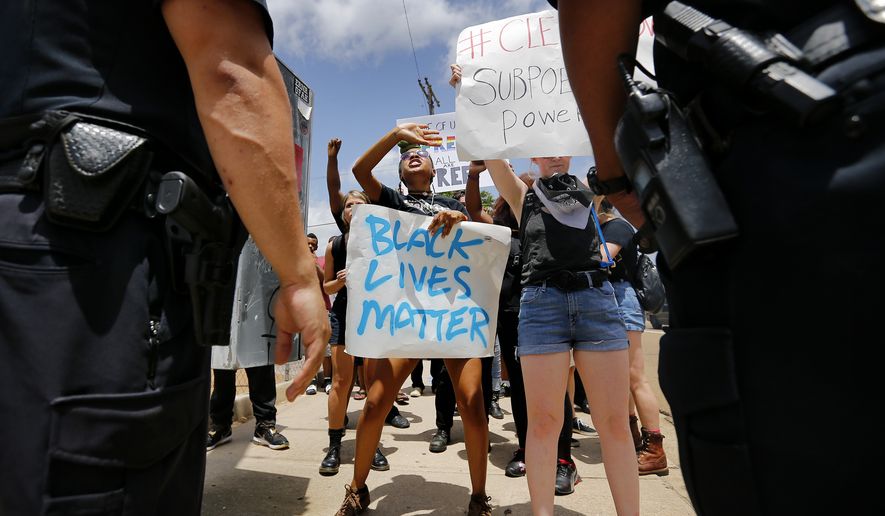As police departments across the country geared up for more Black Lives Matter demonstrations, the White House on Thursday called the street protests “a good thing.”
Military bases posted warnings to personnel to stay away from public gathering spots Friday evening in 37 cities such as the Gateway Arch in St. Louis “due to potential protests and criminal activity.” Others said the online call for a “Day of Rage” across the U.S. is likely a hoax.
Law enforcement officials acknowledge they are on edge after the assassinations of five police officers in Dallas last week at a Black Lives Matter demonstration and the arrests in the past week of hundreds of people in major cities protesting the shooting deaths of two black men by police in Louisiana and Minnesota.
White House press secretary Josh Earnest said the Black Lives Matter protests — as long as they are peaceful — could help bring reforms in police departments.
“I would not describe the White House as concerned about these protests,” Mr. Earnest said. “They’re exercising their freedom of speech, they’re exercising their freedom of assembly. That’s a good thing. That’s a good start.”
President Obama took part in a televised town hall meeting in Washington with minority youths, parents, police and others to discuss problems with policing, including bias. The program was scheduled to air Thursday night.
After another meeting with police and civil rights leaders this week, Mr. Obama said the U.S. is “not even close” to resolving tensions between minority communities and police departments.
“We will see more tension,” he said.
Some black leaders say they plan to devote more attention to the crisis than to the presidential election, which could pose a complication for presumptive Democratic nominee Hillary Clinton. It’s unclear how the racial tensions might play out in the campaign, but presumptive Republican nominee Donald Trump this week began referring to himself as the “law-and-order” candidate.
A coalition of law enforcement officials told Mr. Trump and Mrs. Clinton in a letter this week that reducing arrests and imprisoning fewer Americans are key to promoting law and order. The letter from the Major Cities Chiefs Association, the National District Attorneys Association and other groups said rehabilitation and shorter prison sentences are paths to reducing crime.
“Though this may seem counterintuitive, we know from our experience as law enforcement officials that over-relying on incarceration does not deter crime,” they wrote. “With finite prison space, we believe prison should be used for the most dangerous offenders.”
With six months left in Mr. Obama’s presidency, his spokesman said there is only so much the president can do to resolve the long-simmering problems between police and minorities in many communities.
“The president will do his part,” Mr. Earnest said, “but he’s not at all going to be able to do this alone. It’s not something that the president of the United States is going to be able to do just by delivering a thoughtful, eloquent, powerful speech. This is mostly going to fall on the shoulders of men and women of good will in law enforcement, in elected office, in faith communities, churches, and mosques, and synagogues, at universities, high schools, and homes.”
The National League of Cities and U.S. Conference of Mayors called for local officials to hold “100 community conversations on race relations, justice, policing and equality,” The Associated Press reported. Lawmakers on Capitol Hill announced the formation of a task force to examine police accountability and aggression toward law enforcement.
“I think we need to listen and learn, instead of just starting to throw bombs at each other,” said House Speaker Paul D. Ryan, Wisconsin Republican.
• Dave Boyer can be reached at dboyer@washingtontimes.com.




Please read our comment policy before commenting.